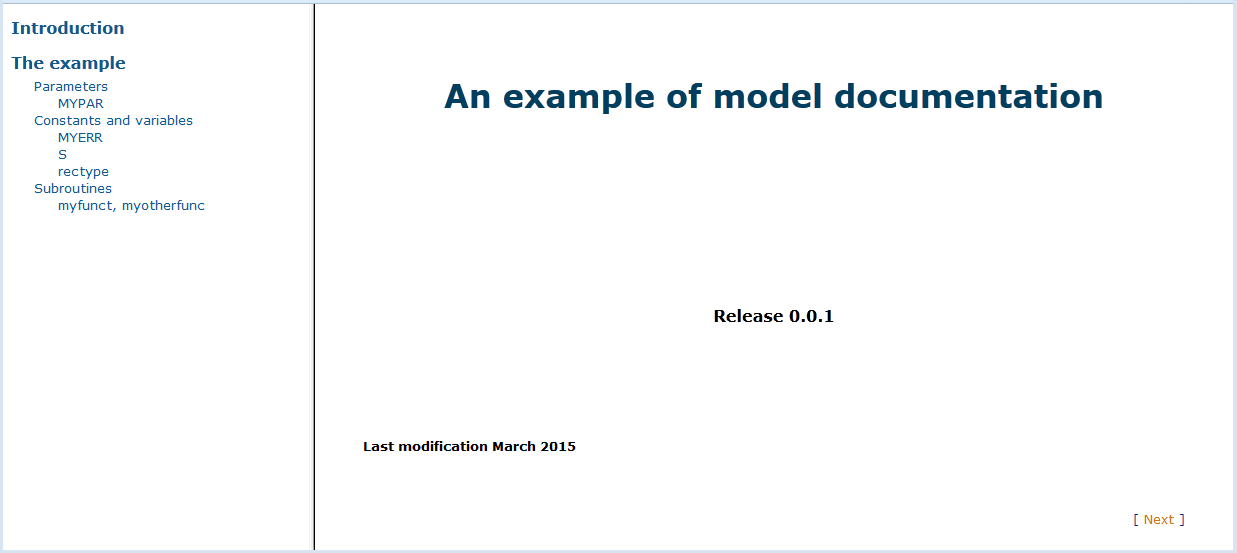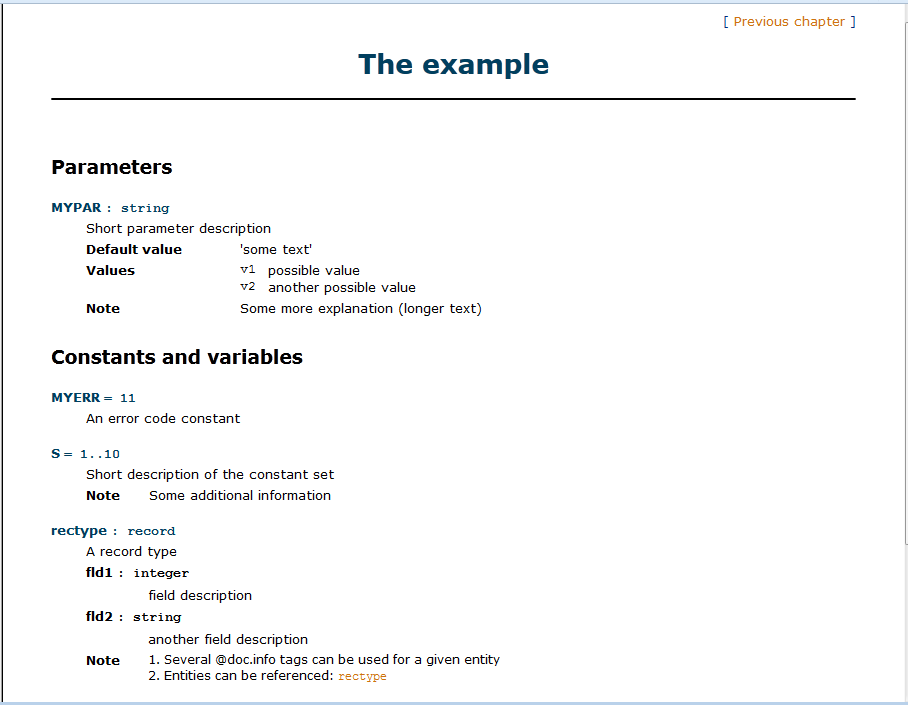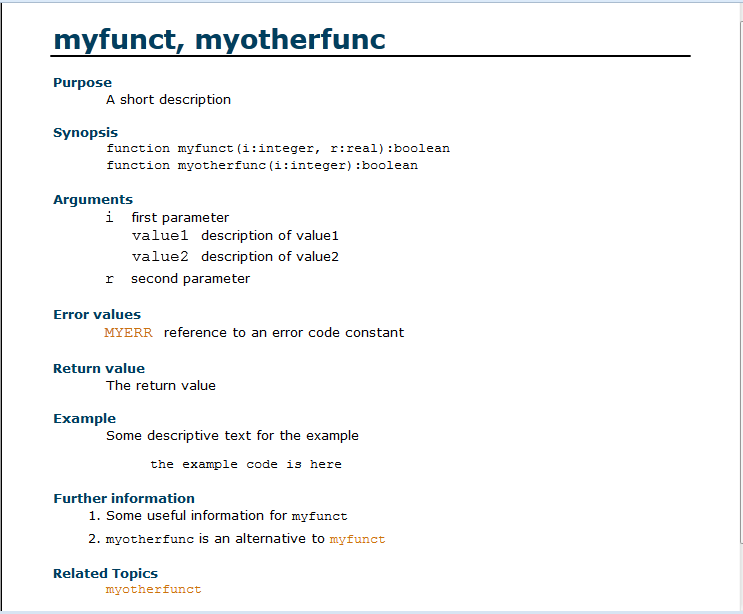moseldoc: Generating model documentation
The Mosel compiler reserves a special treatment to annotations belonging to the doc category. This annotation category will only be included into the BIM file if the source file is compiled with the option -D, such as
mosel comp -D mymodel.mos
To enable the -D compiler option in Xpress Workbench open the Run menu and select the entry Compiler Options, enable the Generate Doc Annotations option, and confirm with Save. When you next click the Compile button ![]() in the Workbench toolbar, the resulting BIM file will contain documentation annotations.
in the Workbench toolbar, the resulting BIM file will contain documentation annotations.
The tool moseldoc can be applied to the resulting BIM file to generate an XML file that is then processed into a set of HTML pages:
moseldoc mymodel ! Generates HTML and XML moseldoc -html mymodel ! HTML output only moseldoc -o mydir -html mymodel ! Specify HTML output directory moseldoc -xml mymodel ! XML output only moseldoc -ixml mymodel ! XML file for inclusion (omitting header+root) moseldoc -f mymodel ! Force output overwrite
Here are some examples of how to use the documentation annotations:
- Document structure:
(!@doc. @title An example of model documentation @version 0.0.1 @date March 2015 @chapter Introduction @p This model needs to be compiled with the <tt>-D</tt> compiler option to include the documentation annotations into the BIM. The <tt>moseldoc</tt> program takes the resulting BIM file as input. !) !@doc.chapter The example !@doc.section Parameters
The resulting cover page and table of contents generated by moseldoc look as follows (the contents listing also refers to the entity and subroutine annotations shown in the following items):

- Documenting parameters:
parameters !@doc.descr Short parameter description !@doc.value v1 possible value !@doc.value v2 another possible value !@doc.info Some more explanation (longer text) MYPAR="some text" end-parameters
- Documenting entity declarations (type definitions, constants, variables):
!@doc.section Constants and variables public declarations (!@doc. @descr Short description of the constant set @info Some additional information !) S=1..10 !@doc.descr An error code constant MYERR=11 (!@doc. @descr A record type @recflddescr fld1 field description @recflddescr fld2 another field description @info Several @doc.info tags can be used for a given entity @info Entities can be referenced: <entRef>rectype</entRef> !) rectype=public record fld1:integer fld2:string end-record end-declarations
This is the HTML page generated by moseldoc from these parameter and entity annotations:

- Documenting subroutines:
!@doc.section Subroutines (!@doc. @descr A short description @param i first parameter @paramval i value1 description of value1 @paramval i value2 description of value2 @param r second parameter @err MYERR reference to an error code constant @return The return value @example Some descriptive text for the example @example [SRC] the example code is here @info Some useful information for <tt>myfunct</tt> @related <fctRef>myotherfunct</fctRef> !) public function myfunct(i:integer,r:real):boolean returned:=i>r end-function !@doc.group myfunct !@doc.info <tt>myotherfunc</tt> is an alternative to <fctRef>myfunct</fctRef> public function myotherfunc(i:integer):boolean returned:=true end-function
The HTML subroutine documentation page generated by moseldoc from these annotations is shown here:

- Relocating documentation contents:
!@doc.section A section title !@doc.relocate newlocref ... ! All doc annotations defined here will be inserted at marker 'newlocref' !@doc.relocate ... ! All subsequently defined doc annotations remain where they are !@doc.section Destination location !@doc.location newlocref
- Excluding contents from generated documentation:
!@doc.autogen=false public declarations ... ! All doc annotations defined here will be ignored end-declarations !@doc.autogen=true ... ! All subsequently defined doc annotations will get processed
© 2001-2019 Fair Isaac Corporation. All rights reserved. This documentation is the property of Fair Isaac Corporation (“FICO”). Receipt or possession of this documentation does not convey rights to disclose, reproduce, make derivative works, use, or allow others to use it except solely for internal evaluation purposes to determine whether to purchase a license to the software described in this documentation, or as otherwise set forth in a written software license agreement between you and FICO (or a FICO affiliate). Use of this documentation and the software described in it must conform strictly to the foregoing permitted uses, and no other use is permitted.

